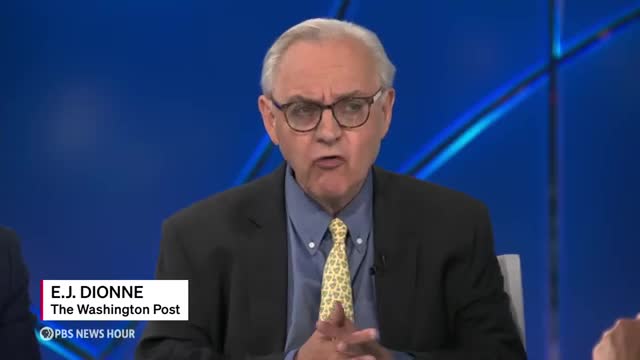Supreme Court faces ethics crisis amid gala controversy

This article was created by AI summarizing key points discussed. AI makes mistakes, so for full details and context, please refer to the video of the full meeting. Please report any errors so we can fix them. Report an error »

In a recent government meeting, significant discussions centered around the ethical standards of the Supreme Court and the recent conviction of Hunter Biden on federal felony gun charges.
Concerns were raised regarding the Supreme Court justices' lack of enforceable ethics rules, a situation that starkly contrasts with the ethical obligations imposed on federal employees across various agencies. Critics highlighted that while employees at the Department of Defense, Social Security, and the Environmental Protection Agency are held to strict ethical standards, Supreme Court justices operate without similar oversight. This disparity has led to calls for the establishment of ethics rules for the nation's highest court, especially in light of recent controversies that have emerged over the past six months.
The conversation then shifted to Hunter Biden, who was found guilty on three felony gun charges. Analysts debated whether this conviction undermines the Republican narrative that President Joe Biden is using his position to target political opponents. Some argued that Hunter Biden's legal troubles are exacerbated by his father's high-profile status, suggesting that he might not have faced such severe consequences if not for his familial connections. The discussion also touched on the perceived inconsistency in the Republican response to legal proceedings involving Hunter Biden compared to those involving former President Donald Trump, raising questions about fairness and political bias in the judicial process.
Overall, the meeting underscored critical issues regarding judicial ethics and the implications of political influence on legal accountability.
Concerns were raised regarding the Supreme Court justices' lack of enforceable ethics rules, a situation that starkly contrasts with the ethical obligations imposed on federal employees across various agencies. Critics highlighted that while employees at the Department of Defense, Social Security, and the Environmental Protection Agency are held to strict ethical standards, Supreme Court justices operate without similar oversight. This disparity has led to calls for the establishment of ethics rules for the nation's highest court, especially in light of recent controversies that have emerged over the past six months.
The conversation then shifted to Hunter Biden, who was found guilty on three felony gun charges. Analysts debated whether this conviction undermines the Republican narrative that President Joe Biden is using his position to target political opponents. Some argued that Hunter Biden's legal troubles are exacerbated by his father's high-profile status, suggesting that he might not have faced such severe consequences if not for his familial connections. The discussion also touched on the perceived inconsistency in the Republican response to legal proceedings involving Hunter Biden compared to those involving former President Donald Trump, raising questions about fairness and political bias in the judicial process.
Overall, the meeting underscored critical issues regarding judicial ethics and the implications of political influence on legal accountability.
View full meeting
This article is based on a recent meeting—watch the full video and explore the complete transcript for deeper insights into the discussion.
View full meeting